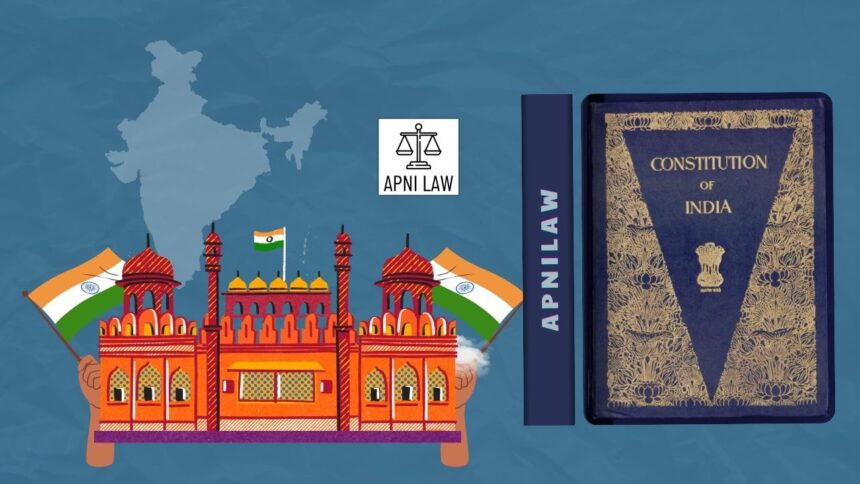Introduction
Elections are the lifeblood of democracy. In India, the Election Commission of India (ECI) ensures that every election is free, fair, and impartial. Established under Article 324 of the Indian Constitution, the Commission supervises elections for Parliament, state assemblies, and the offices of the President and Vice President. The framers of the Constitution knew that political freedom means little without fair elections. To protect that freedom, they created an independent body that stands as a guardian of democracy.
Historical Background
The Election Commission was formed on 25 January 1950, just before India’s first general elections in 1951–52. This marked the beginning of a new democratic journey. Those elections involved millions of voters and showed that a newly independent nation could hold elections peacefully and efficiently. Over the years, the Commission has adapted to changing times. From paper ballots to Electronic Voting Machines (EVMs) and Voter Verifiable Paper Audit Trails (VVPATs), the ECI has modernized to keep elections transparent and trustworthy.
Constitutional Basis: Article 324
Article 324 grants the Election Commission the power to direct, control, and supervise elections in India. This includes elections to Parliament, state legislatures, and the offices of the President and Vice President. The Article gives the Commission independence from the government, protecting it from political pressure. It also allows flexibility so that the ECI can manage unforeseen challenges, such as violence, code violations, or misuse of power during elections.
Structure of the Election Commission
Initially, the Election Commission was a single-member body headed by the Chief Election Commissioner (CEC). However, in 1989, it became a multi-member body with two additional Election Commissioners. All three members have equal powers and make decisions collectively.
The President of India appoints the CEC and other Election Commissioners. They enjoy a high level of protection from removal, similar to judges of the Supreme Court. This ensures their independence and prevents arbitrary interference by the government. The Commission also relies on Chief Electoral Officers and District Election Officers, who carry out election-related duties across the country.
Powers and Functions of the Election Commission
The Election Commission manages every stage of the electoral process. It prepares electoral rolls, announces election dates, and ensures smooth conduct of polling. The Commission enforces the Model Code of Conduct, ensuring that political parties and candidates follow ethical campaign practices.
It monitors campaign finances, prevents hate speech, and prohibits the use of government resources for political gain. The Commission can disqualify candidates, cancel elections in cases of fraud, and order re-polls when irregularities occur.
By ensuring transparency and discipline, the Commission strengthens public trust in the democratic process. It also plays a key role in voter education and awareness, encouraging citizens to participate in elections responsibly.
Ensuring Free and Fair Elections
The Election Commission’s success depends on its neutrality. To maintain fairness, it transfers officials accused of bias, monitors campaign spending, and deploys observers at polling stations. The introduction of EVMs and VVPATs has reduced human error and tampering, making vote counting more accurate.
The Commission also uses technology to clean up voter lists and prevent duplicate entries. Through awareness programs like Systematic Voters’ Education and Electoral Participation (SVEEP), it ensures greater voter turnout, especially among youth and first-time voters.
Challenges Faced by the Election Commission
The Election Commission faces several challenges in modern times. Political influence and misinformation on social media make it harder to maintain fairness. Concerns about transparency in the appointment of Election Commissioners have led to calls for an independent selection process.
Financial dependence on the government also affects its autonomy. Though the ECI functions independently, it still depends on the executive for its budget. Additionally, increasing voter apathy and digital disinformation pose serious threats to electoral integrity.
The Supreme Court of India recently stressed the need for reforms in appointments and funding to protect the Commission’s independence. Strengthening these safeguards will help the ECI stay free from external pressure.
Reforms and the Way Forward
Experts suggest giving the Election Commission full financial autonomy, like that enjoyed by the judiciary. A collegium system for appointments, including the Prime Minister, Leader of the Opposition, and the Chief Justice of India, can make the process more transparent.
Regulating digital campaigning, ensuring real-time expense monitoring, and promoting voter literacy can make elections more credible. The Commission also needs more technological tools to fight fake news and cyber threats that can influence voters.
Frequently Asked Questions
1. What is Article 324 of the Indian Constitution?
Article 324 empowers the Election Commission of India to direct, control, and supervise elections for Parliament, state legislatures, and the offices of the President and Vice President.
2. Who appoints the members of the Election Commission?
The President of India appoints the Chief Election Commissioner and other Election Commissioners. However, experts recommend a more transparent appointment process through a collegium system.
3. Why is the Election Commission important?
The Commission ensures that elections are fair, free, and transparent. It maintains public trust in democracy and guarantees that every vote carries equal value.
Conclusion
The Election Commission of India, empowered by Article 324, stands as the guardian of Indian democracy. It ensures that elections remain transparent, fair, and unbiased. From 1950 to the present day, the Commission has conducted the world’s largest elections with remarkable credibility.
As India faces new challenges like misinformation and technological misuse, the ECI must continue to evolve. Its independence, efficiency, and fairness are crucial for maintaining citizens’ faith in democracy. Strengthening the Election Commission will safeguard the constitutional promise of equality, justice, and representation for every Indian voter.
For any specific query call at +91 – 8569843472








